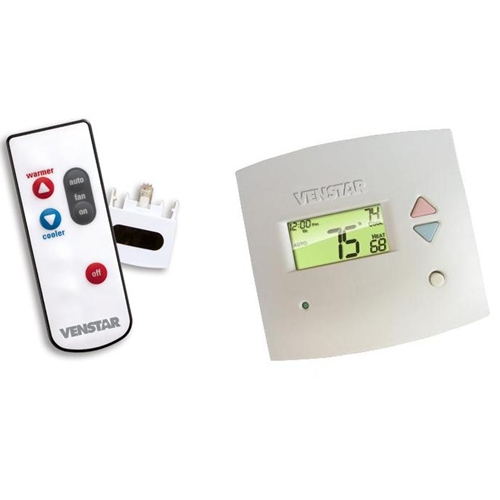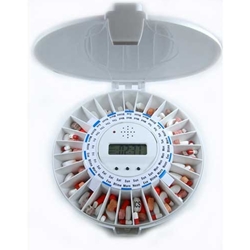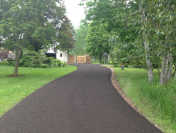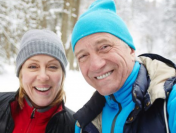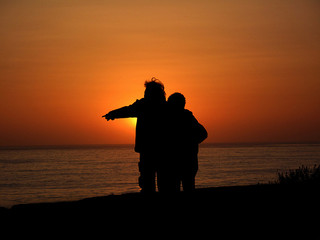 Older adults and seniors are especially vulnerable to the summer’s heat and humidity due to physical changes that come with aging, such as the body’s inability to regulate temperature efficiently and a reduced sensitivity to heat and thirst.  When there is a heat wave, doctors suggest that seniors:
Older adults and seniors are especially vulnerable to the summer’s heat and humidity due to physical changes that come with aging, such as the body’s inability to regulate temperature efficiently and a reduced sensitivity to heat and thirst.  When there is a heat wave, doctors suggest that seniors:
– Stay inside and avoid the sun
– Dress in light layers
– Eat light meals and stay hydrated
– Avoid unneccessary exercise or movement
If you’re a senior or caregiver to an elderly person, here are some additional summer safety tips you can follow to reduce the risk of dehydration, heat stroke and other heat-related issues:
Drink plenty of fluids
All seniors need to stay hydrated during a heat spell by drinking 6-8 glasses of water a day.  If they are taking medications that remove salt and fluids from the body, or exercising or doing any type of prolonged physical activity, 2-4 glasses are recommended. Fluids should be non-alcoholic and decaffeinated. Carbonated sodas and pops may taste good, but they will only increase dehydration.
Run the air conditioner to stay cool
Air conditioning is vital for seniors on a hot and humid day, but many elderly people avoid turning on the A/C to save money or because they don’t realize how hot it is!  During a heat wave, seniors should consider setting their A/C at 70 to 74 degrees to keep their home comfortable. You can make it easy for them to adjust the temperature without having to get up by equipping their home with a wireless thermostat with a handheld remote control. For seniors who live alone, you can install a phone-controlled thermostat that puts family or caregivers in charge of the thermostat by giving them the ability to control the A/C system by telephone.
Coping with a power outage
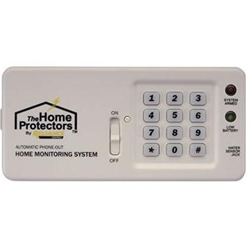 Power outages happen frequently in the summer when everyone has their A/C cranking or a thunderstorm blows through. When the power goes out, seniors should open windows to improve cross ventilation and lower the shades to block out the sun. Minimizing activity and taking sponge baths will also help them stay cool. For seniors living alone, a handy device called a “call-out power failure alarm“ can be hooked up to automatically alert family or caregivers when there’s a power outage. Knowing their senior has no electricity allows caregivers to take precautions before there’s a medical emergency. A personal emergency response system that is worn or mounted on the wall is another device that gives seniors a way to call out for assistance.
Power outages happen frequently in the summer when everyone has their A/C cranking or a thunderstorm blows through. When the power goes out, seniors should open windows to improve cross ventilation and lower the shades to block out the sun. Minimizing activity and taking sponge baths will also help them stay cool. For seniors living alone, a handy device called a “call-out power failure alarm“ can be hooked up to automatically alert family or caregivers when there’s a power outage. Knowing their senior has no electricity allows caregivers to take precautions before there’s a medical emergency. A personal emergency response system that is worn or mounted on the wall is another device that gives seniors a way to call out for assistance.
Staying cool without air conditioning
During the “dog days†of summer, seniors living without air conditioning should try to spend a few hours a day in an air-conditioned public place, such as a library, shopping mall or movie theater. Back home, remind your senior to open the windows, keep shades and blinds drawn, turn on fans and take frequent cool showers.
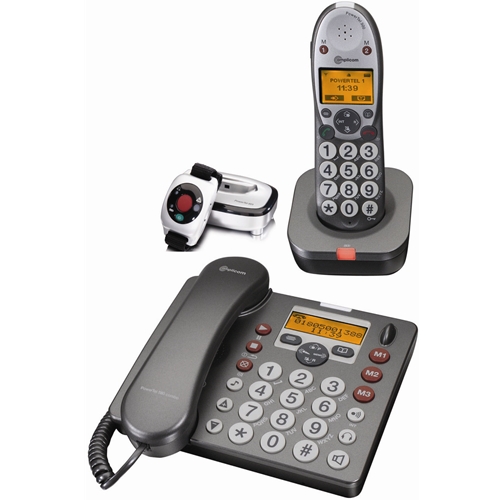 Use a “buddy systemâ€
Use a “buddy systemâ€
Heat-induced illness can cause a person to become confused or lose consciousness.  Seniors who live alone should ask a friend or relative to call to check on them a couple of times a day during a heat wave.  To make it really easy for your senior to call out for help during an emergency or be able to answer the phone remotely, get them a “big button†amplified telephone paired with a wristband-style panic button.
Keep prescription medications filledÂ
Seniors should stay inside on an extremely hot day, so keep critical meds well-stocked so they don’t have to leave the cool house to get refills. An automatic pill dispenser makes it easy to see when its time for a refill.  To remind seniors when it is time to take their pill, many people like the vibrating pill box that beeps or vibrates to signal medication time.  Also note that some medications can cause an increased sensitivity to ultraviolet (UV) rays, so seniors should review their prescriptions with a doctor or pharmacist to learn which meds have with these side effects.
Summary
As summer continues and temperatures remain high, you can help your senior stay comfortable and healthy by reviewing these summer safety tips. For additional health recommendations on keeping seniors safe in the summer, go to the website of the American Geriatrics Society’s Foundation for Health in Aging (FHIA).


